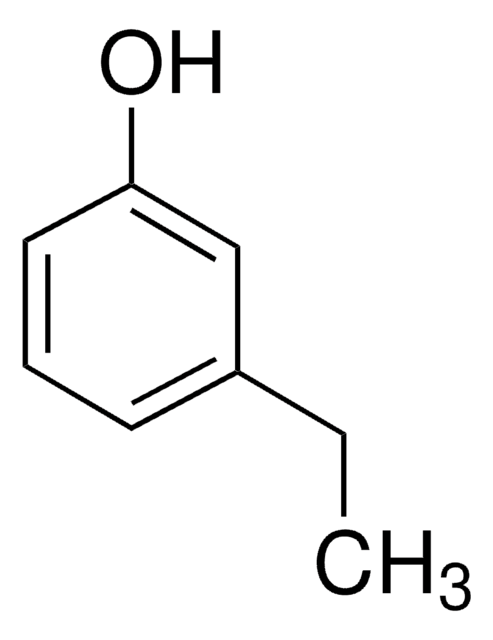D175404
3,4-Dimethylphenol
98%
Synonym(s):
1,2-Dimethyl-4-hydroxybenzene, 3,4-Xylenol, 4-Hydroxy-o-xylene
About This Item
Recommended Products
Quality Level
Assay
98%
form
crystals
bp
227 °C (lit.)
mp
65-68 °C
storage temp.
2-8°C
SMILES string
Cc1ccc(O)cc1C
InChI
1S/C8H10O/c1-6-3-4-8(9)5-7(6)2/h3-5,9H,1-2H3
InChI key
YCOXTKKNXUZSKD-UHFFFAOYSA-N
Looking for similar products? Visit Product Comparison Guide
Related Categories
Application
- It can react with ethyl cinnamates in trifluoroacetic acid to form the corresponding dihydrocoumarin derivatives.
- Bromination of 3,4-dimethylphenol using bromine can lead to 6-bromo-3,4-dimethylphenol.
- It can react with 1-fluoro-4-chloromethyl-1,4-diazoniabicyclo[2.2.2]octane bis(tetrafluoro-borate) (Selectfluor® F-TEDA-BF4) to form 4-fluoro-3,4-dimethylcyclohexa-2,5-dienone.
Legal Information
Signal Word
Danger
Hazard Statements
Precautionary Statements
Hazard Classifications
Acute Tox. 3 Dermal - Acute Tox. 3 Oral - Aquatic Chronic 2 - Eye Dam. 1 - Skin Corr. 1B
Storage Class Code
6.1A - Combustible acute toxic Cat. 1 and 2 / very toxic hazardous materials
WGK
WGK 3
Flash Point(F)
230.0 °F - closed cup
Flash Point(C)
110 °C - closed cup
Personal Protective Equipment
Choose from one of the most recent versions:
Already Own This Product?
Find documentation for the products that you have recently purchased in the Document Library.
Customers Also Viewed
Our team of scientists has experience in all areas of research including Life Science, Material Science, Chemical Synthesis, Chromatography, Analytical and many others.
Contact Technical Service












